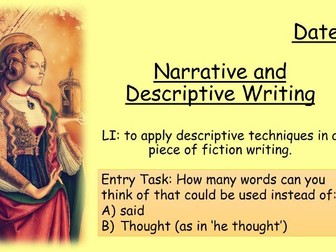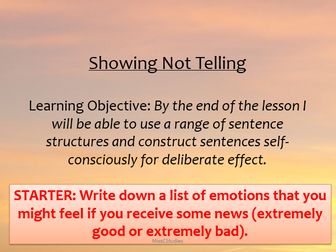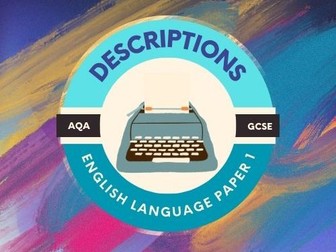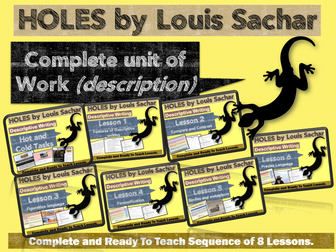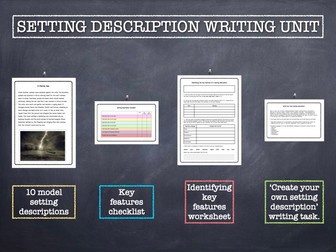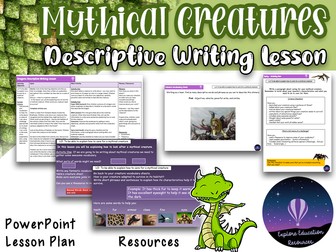
Myths and Legends Descriptive Writing
Myths and Legends KS3 English descriptive writing lesson that supports students as they explore how language techniques are used in an extract about a chimera to engage the reader. Useful for looking at Myths and Legends, genre, character , language analysis and moving KS3 students towards English Language exams at GCSE. Includes a model examp
Useful preparation for both Section A and Question 5 of GCSE English Language exams, but designed for KS3 students. Includes teacher and student notes.
Check out our English Shop for loads more free and inexpensive KS3, KS4, KS5, Literacy and whole school resources.
This lesson forms part of our KS3 Complete Pack. Find out more here.
AQA English Language Paper 1 and Paper 2 Knowledge Organisers
AQA English Language Paper 1 Section A package
AQA English Language Paper 1 Sections A and B package
AQA English Language Paper 1 package
AQA English Language Paper 2 Question 5 package
AQA English Language Paper 1 Question 5 package
AQA English Language Paper 2 Section A package
AQA English Language and English Literature revision package
An Inspector Calls whole scheme package
An Inspector Calls revision package
Macbeth whole scheme package
Macbeth revision package
A Christmas Carol whole scheme package
A Christmas Carol revision package
Jekyll and Hyde whole scheme package
Jekyll and Hyde revision package
Romeo and Juliet whole scheme package
Power and Conflict poetry comparing poems package
Power and Conflict poetry whole scheme package
Love and Relationships poetry whole scheme package
Unseen Poetry whole scheme package
Or check out some Citizenship GCSE, RE, PSHE + RSE resources at EC Resources
